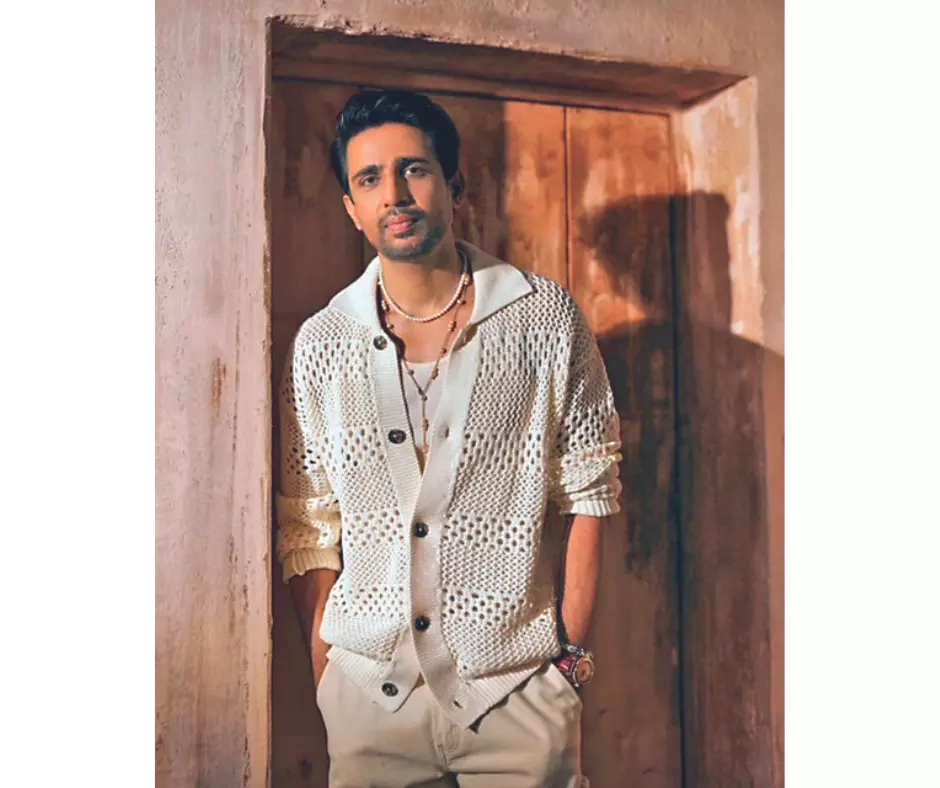‘Art is a subjective medium’

Gulshan Deviah discusses the dynamics of working with various people on sets, how he decides on his projects, and the state of the Hindi film industry in general. (Image by arrangement)
Gulshan Deviah is all set to share screen space with Jahnvi Kapoor in the espionage thriller Ulajh, but according to Gulshan, the co-stars didn’t vibe on set.
That being said, he emphasises that even though they weren’t friends off-set, they managed to complete the job effectively.
It’s all about doing a good job
It’s all about doing a good job
“It was lovely working with her,” clarified Gulshan. “The experience of working with someone depends on whether you enjoyed the activity or not. It was good working with her. But when you ask about things outside work, that’s different. Two people, or five people don’t have to get along fabulously and be friends for them to be able to do their work. In a professional environment, nobody needs to vibe, and it’s not Janhvi’s fault or my fault. Our responsibility is to play our characters well and that’s what professional actors do.” Gulshan added, “Rajkummar Rao and I have done three projects; we are friendly on sets, but beyond that, we don’t sit and chat. On the other hand, I have found it difficult to work with actors who are my friends. So I would rather work with people who are with the scene and get the job done.”
Career choices
Career choices
Though the narrative of Ulajh centres around Janhvi, Gulshan said the story and the part offered to him were what drove him to do the film. “I need to have a genuine point of interest in the part; then comes the story; and the third deciding factor is whether it is good for my career or not.” The actor however, admitted that choices are subjective, and his decisions may not all have worked in his favour.
A graduate of the NIFT, Gulshan was teaching fashion in Bangalore before starting his acting journey in Bangalore’s English theatre. He made his Bollywood debut with Anurag Kashyap’s That Girl in Yellow Boots, in 2010, He also has to his credit Sanjay Leela Bhansali’s Ram Leela in 2013, Hunterr, Mard Ko Dard Nahi Hota, Ghost Stories, Guns and Gulaabs and the recent Bad Cop.
Talking about how a critic had labelled a project as ‘career suicide’ on his part, Gulshan sought to dispel some strongly-held beliefs, saying, “One film cannot make or break your career. It wasn’t anything as dramatic as career suicide, but it was a bad film. My only takeaway was that, if you have done one bad film, don’t continue doing bad films.”
Referring to how actors are branded in the industry, Gulshan shared that the practice used to bother him, and added that it had taken him13 years to make people realise he could act, irrespective of the way they envisaged an action or romantic hero. “I cannot focus on results, but what I can do is influence perception, art is a subjective medium,” he stressed.
In defence of Bollywood
In defence of Bollywood
As Bollywood buckles under the load of its heavyweights, with big stars being unable to translate their star power into box office returns, filmmakers like Karan Johar and Anurag Kashyap have called out the unnecessary expenses and inflated budgets, including fees for stars and their entourages, which have led to losses. Gulshan, who has been part of both opulent sets like those of Sanjay Leela Bhansali, as well as more restrained productions, said the entire blame cannot be put on the star. “Mr Bhansali made sure the money was being spent on the film and not the star. Yes, some actors demand a personal chef on set, and seven-star treatment. But these are few. The rest learn from them,” he noted. Sharing the view that production houses willing to spend that kind of money to indulge the stars were also responsible, he said, “Earlier, there were ways of recovering the money, such as selling rights. Now that not happening, so they need to take cognisance.” His suggestion — “Reduce base price and introduce profit sharing across the board, so everyone is invested.”
Speaking out against the constant ‘Bollywood bashing’ on counts of nepotism and lack of democracy, Gulshan insisted that the Hindi film industry is perhaps the most democratic. “I have been part of other industries which are a lot more difficult to break into and do your thing without servicing the power structure. A lot is also made of nepotism but the imaginary class hierarchies which are created are the problem everywhere,” he said.
( Source : Deccan Chronicle )
Next Story

